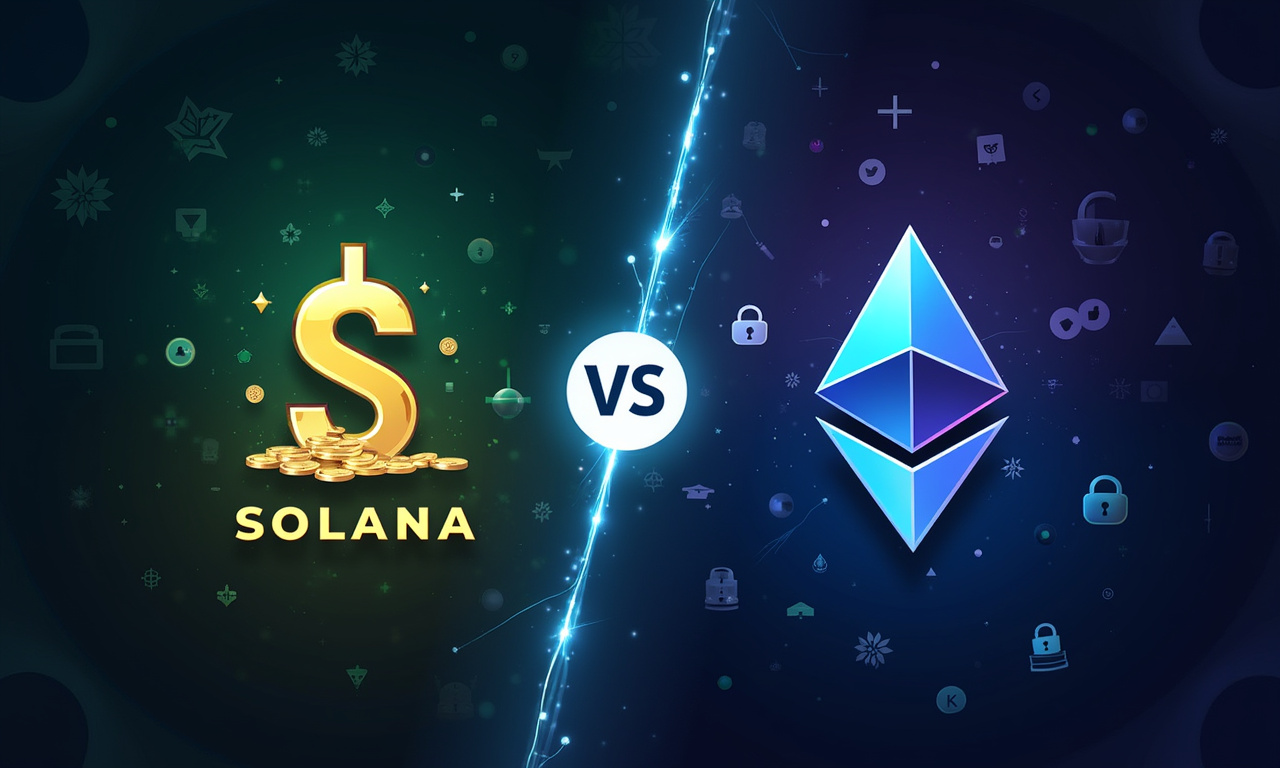
The cryptocurrency market is abuzz with excitement as a new wave of altcoin ETF applications backlogs the regulators’ desks. This increase reflects a rising hopefulness in the market. Overall, bullish sentiment confirmed by the overwhelming expectation that the SEC would soon widen its approval of crypto investment vehicles past Bitcoin and Ether was in the air. The potential approval of altcoin ETFs could unlock a new era for the market, possibly triggering an "Altcoin Summer" rally and attracting significant institutional investment.
The Driving Forces Behind the Altcoin ETF Surge
A few things are driving the hype train on this altcoin ETF craze. To begin with, the launch and popularity of Bitcoin ETFs have proven that there is a great demand for regulated crypto investment products. Institutional investors have gained an essential vehicle in these exchange-traded funds. These funds enable them to access the burgeoning cryptocurrency market via financial vehicles they’re already comfortable with. This tremendous success has unlocked the path for many other digital assets to do the same. Second, there is an increasing sense that the SEC’s position vis-a-vis crypto assets has changed. Admittedly, the agency has been too timid in the past. Approving Bitcoin and Ether ETFs signals that they are willing to look beyond that, at least for the right digital assets, in the right circumstances. This regulatory optimism is leading issuers to rush and file new altcoin ETFs. Smart City registrants are tracking the booming market for new investment products. This crypto boom is opening the doors for more mainstream investors to dip their toes into a wider array of digital currencies, going beyond the top two. This newfound accessibility is fueling more interest in altcoins and their price appreciation potential.
Altcoins Vying for ETF Approval: Litecoin and Solana Lead the Pack
Of all the various altcoins waiting ETF approval would be enough to push them over the finish line, Litecoin (LTC) and Solana (SOL) seem to be leading the pack. Per Polymarket data, the chances of the SEC approving a Solana ETF have spiked to 76%. This time, the SEC went so far as to recognize Canary Capital’s SOL ETF filing in February 2025. This ruling follows on the heels of the SEC’s decision to delay its judgment on Canary Capital’s Litecoin (LTC) ETF just last week. The market seems to agree as it is pricing in a greater than 90% probability of approval for these ETFs. Over 80% of the investors are betting on approval of a Solana and Litecoin ETF in 2025. This enthusiasm remains robust, despite the SEC’s recent delay. Others forecast as high as a 90% likelihood of XRP receiving ETF approval, as of writing. They further calculate that Dogecoin has an 80% likelihood of getting the same kind of approval.
Potential Impact on the Broader Crypto Market
Indeed, the approval of altcoin ETFs would turn make crypto’s second-tier tokens more mainstream and transform their status on the broader crypto market. For mainstream investors, I think it provides a regulated, simple avenue into investing in altcoins. This improved accessibility has the potential to result in massive capital inflows. This new demand would strengthen the price appreciation for the new underlying assets and enhance market sentiment in general. Regulatory agencies have the power to increase the credibility and legitimacy of altcoins. This validation will bring greater institutional interest and spur further innovation in the crypto space. The pure anticipation of these approvals is creating a tremendous amount of positive market sentiment. REUTERS/Mike Blake Such optimism is preparing the ground for an explosive “Altcoin Summer” rally.
Navigating the SEC's Evolving Stance and the Challenges Ahead
Although the outlook for altcoin ETFs is very positive, it’s crucial to recognize the obstacles and uncertainties that are still in play. The SEC’s default approach on crypto assets has always been one of skepticism. Their priorities have been on protecting investors, preventing market manipulation, and providing regulatory clarity. The approval of Bitcoin and Ether ETFs represents a change in attitude. Nonetheless, the agency is expected to continue to take a strict review approach on ETF applications for altcoins.
Challenges Faced by Altcoin ETFs
Yet in face of these challenges, the mounting pressure behind altcoin ETFs acquisition seems irresistible nonetheless, with approvals clearly on the way, although not necessarily guaranteed. We can expect the SEC will take a case by case approach. For example, they will consider the maturity of the underlying asset, the health of its market, and level of regulatory supervision. The SEC could opt for a staggered rollout. Perhaps they could begin by approving ETFs for a small subset of aligned altcoins before opening the floodgates to more assets.
- Lower Liquidity: Altcoins such as Solana and XRP have lower liquidity compared to Bitcoin, which raises concerns about their ability to support stable ETFs.
- Higher Volatility: Altcoins are generally more volatile than Bitcoin, which can make it more difficult for regulatory bodies to approve ETFs.
- Lack of Comprehensive Federal Regulation: The regulatory landscape for crypto ETFs is still evolving, and there is no comprehensive federal regulation of digital assets or cryptocurrency in the US.
- Market Cap and Trading Volume: Altcoins have smaller market caps and trading volumes compared to Bitcoin, which can make it more challenging for ETFs to track their underlying assets.
The Likelihood of Approval: A Balanced Perspective
If you’re looking to capitalize on altcoin ETFs, tread lightly. All of these factors make a well-informed strategy all the more necessary to succeed in this burgeoning market.
Actionable Insights for Investors
Investors should conduct thorough research on the specific altcoins underlying the ETFs they are considering, assessing their fundamentals, market potential, and risk profiles. Diversification The crypto market is wildly unpredictable, making diversification essential to reducing risk. Just like investors diversify their portfolios, investors should spread their assets instead of putting them all in one basket.
- Regulatory Clarity: Investors should stay informed about regulatory developments and approvals for altcoin ETFs, as changes in regulations can impact the viability of these investment products.
- Market Volatility: Altcoins can be highly volatile, and ETF launches may not necessarily reduce this volatility. Investors should be prepared for potential price fluctuations.
- Custodial Risks: As with spot bitcoin ETFs, altcoin ETFs may use custodians to hold the underlying assets, introducing risks related to asset security and potential losses.
- Liquidity Concerns: Altcoin ETFs may have lower liquidity compared to established bitcoin ETFs, which can impact investor ability to buy or sell shares.
- Diversification: Investors should consider diversifying their portfolios to minimize risk, as altcoin ETFs may not be suitable for all investment goals or risk tolerances.
The approval of altcoin ETFs remains within the hands of the SEC and its constantly evolving stance. It requires issuers to do a good job of filling regulatory holes. We know the road ahead will not be easy. Those investors who chart their own path through this complex marketplace can be handsomely rewarded.
Ultimately, the future of altcoin ETFs hinges on the SEC's evolving stance and the ability of issuers to address regulatory concerns. While the path forward may be uncertain, the potential rewards for investors who navigate the market carefully could be substantial.

Lee Chia Jian
Blockchain Analyst
Lim Wei Jian blends collectivist-progressive values and interventionist economics with a Malaysian Chinese perspective, delivering meticulous, balanced blockchain analysis rooted in both careful planning and adaptive thinking. Passionate about crypto education and regional inclusion, he presents investigative, data-driven insights in a diplomatic tone, always seeking collaborative solutions. He’s an avid chess player and enjoys solving mechanical puzzles.








